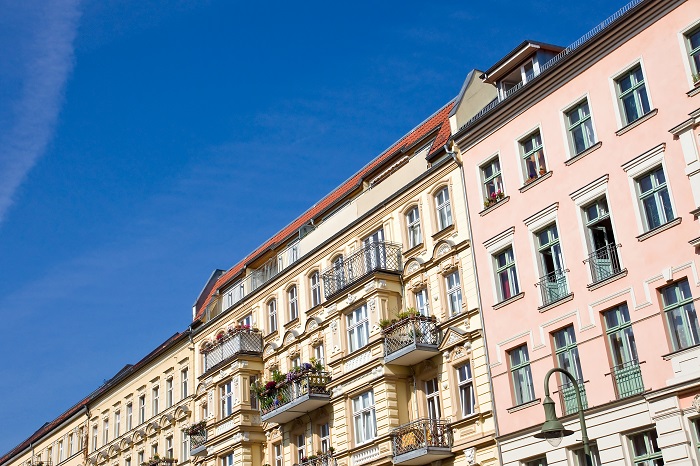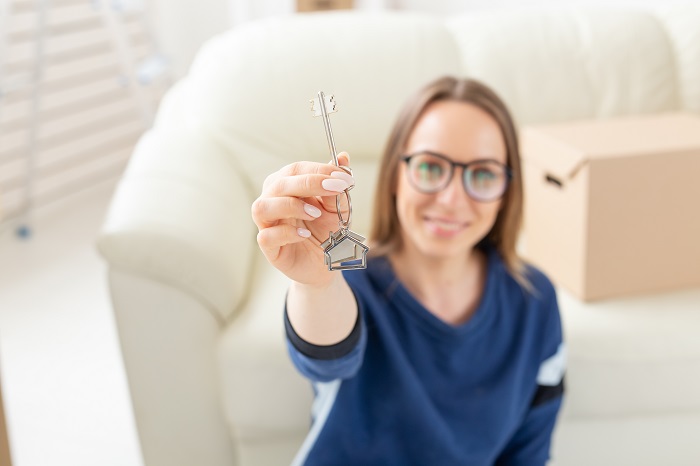Navigating the property market can be daunting, particularly when it comes to buying flats in the UK. Though there are many attractive aspects to purchasing a flat as opposed to a house, it is crucial to understand the disadvantages that may come with such an investment. From restrictions on personalization to ongoing costs, this article aims to examine the various challenges buyers might face when considering buying a flat in the country.
Restrictions on Personal Touches
One of the primary concerns for potential flat owners is the limited scope for personalisation. When purchasing a freehold property, you have full control over its appearance and layout, both inside and out. However, flat ownership often comes with several restrictions regarding how you can modify the space, including what materials you can use and even the colours you can choose. These restrictions might feel stifling for anyone who loves designing and transforming their living space according to their tastes.
Rigid Rules on Renovations
Moreover, incorporating structural changes or carrying out renovations within your flat will likely require seeking permission from the building management or fellow residents. This process could involve time-consuming bureaucracy and might not yield the desired results. Therefore, investing in a flat has the potential to limit homeowners’ creative freedom, thus requiring them to adapt their vision of their dream home.
Pet and Smoking Policies
Flats usually enforce stringent regulations concerning pets and smoking within the premises. These policies can prove challenging for some residents. While certain flats allow specific animals, others operate under a strict no-pets policy which pet lovers must consider before investing in a flat.
In addition, smokers might encounter limitations in their lifestyle due to no-smoking regulations in some blocks. Even if the buildings permit smoking, the close proximity of flats may foster tension regarding noise and odours between neighbours.
Flat Subletting Limitations
The potential for subletting your flat – renting it out to other tenants – might be a significant draw for property investment. However, buying a flat in the UK frequently comes with strict limitations on this lucrative option. Leasehold agreements often include stringent clauses about subletting or mandate the need for approval from the freeholder before letting out the property. This process could deter would-be landlords from purchasing a flat as an income-generating asset.
Effect on Mortgage Prospects
Furthermore, restrictions on subletting can impact buyers’ mortgage prospects. Some lenders are hesitant to grant mortgages to individuals intending to purchase flats with rigid subletting clauses. Consequently, such constraints can create additional complications during the property-buying process.
Ongoing Costs of Flat Ownership
When investing in a flat, you must not only consider the initial price but also factor in numerous ongoing costs. Unlike houses, flat ownership usually involves monthly or annual fees that cover expenses like maintenance, insurance, and communal area upkeep. While these might seem minor at first glance, they can accumulate over time, significantly affecting the affordability of your investment.
- Service Charges: These charges cater to building maintenance and communal area management. They vary based on the building’s size, facilities, and location. A luxurious block with amenities such as a gym and concierge will have higher service charges compared to a more modest development.
- Ground Rent: As a leaseholder, you may be required to pay ground rent to the freeholder. Though this cost tends to be small, it is essential to factor in when calculating your ongoing budget.
- Insurance Premiums: Flat owners typically possess a share of responsibility for building insurance policies, which can be costly depending on factors such as the size and location of the development.
Additionally, if an extensive or unforeseen repair becomes necessary, occupants may have to contribute sizable sums towards these costs. While not dissimilar to maintenance expenses involved with owning a house, seeing these contributions entwined within other monthly costs can appear overwhelming.
Limited Outdoor Space
One of the most apparent drawbacks of flat living is the scarcity of private outdoor space. Balconies and terraces can serve as a minimal substitute, but they rarely compare to the freedom and security of a personal garden. Households with young children or pet owners might find this particularly restrictive. Yet, finding a flat that provides communal gardens and shared green spaces can mitigate this issue to some extent.
Impact on Fitness and Well-Being
A lack of access to an individual outdoor area can also negatively influence residents’ physical and mental well-being. Research consistently emphasizes the benefits of outdoor activity for both mind and body.
In conclusion, it is clear there are several challenges associated with purchasing a flat in the UK. Buyer restrictions, rigid policies regarding pets and smoking, subletting restrictions, ongoing fees, and limited outdoor space are just a few concerns that potential buyers should weigh against the conveniences of flat living. However, as each property decision is ultimately driven by numerous personal factors and preferences, understanding these disadvantages merely serves to make more informed choices for your future home.




